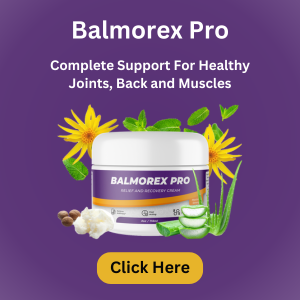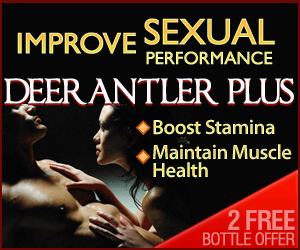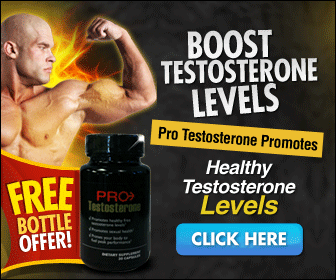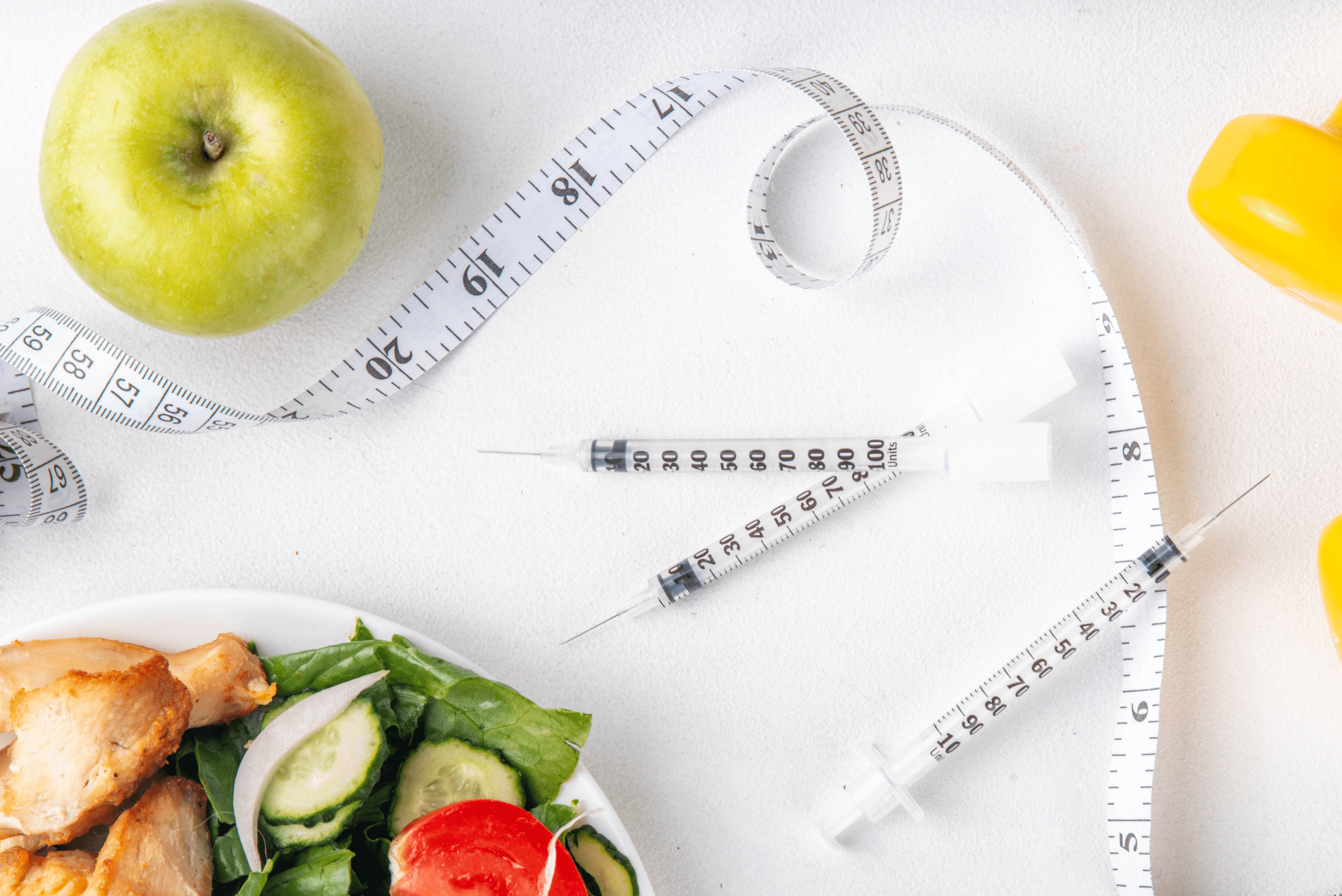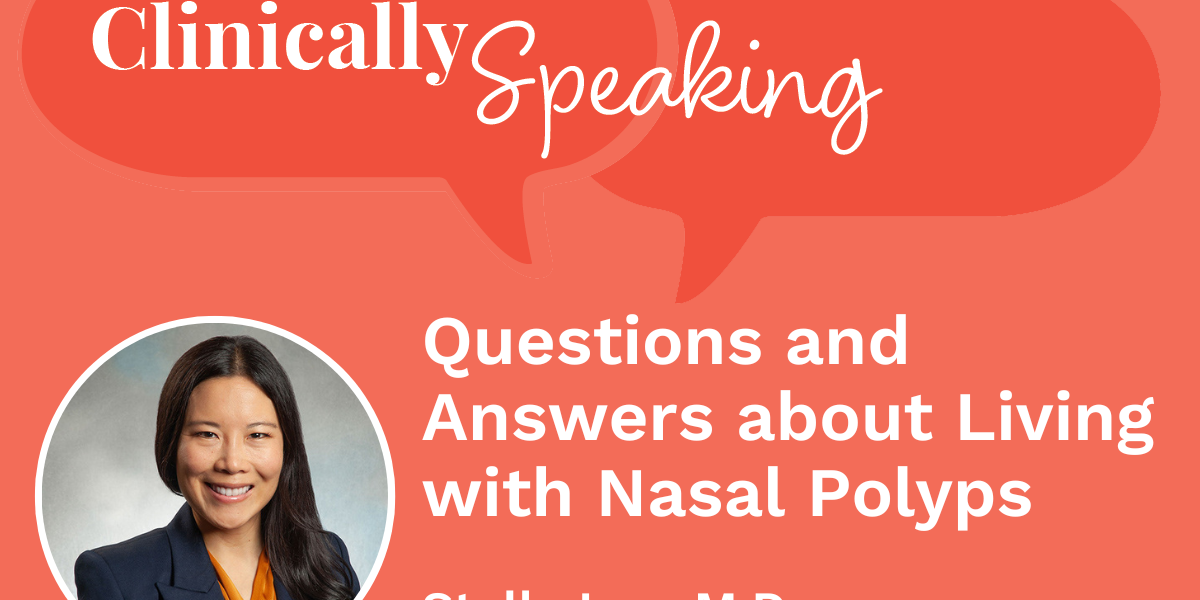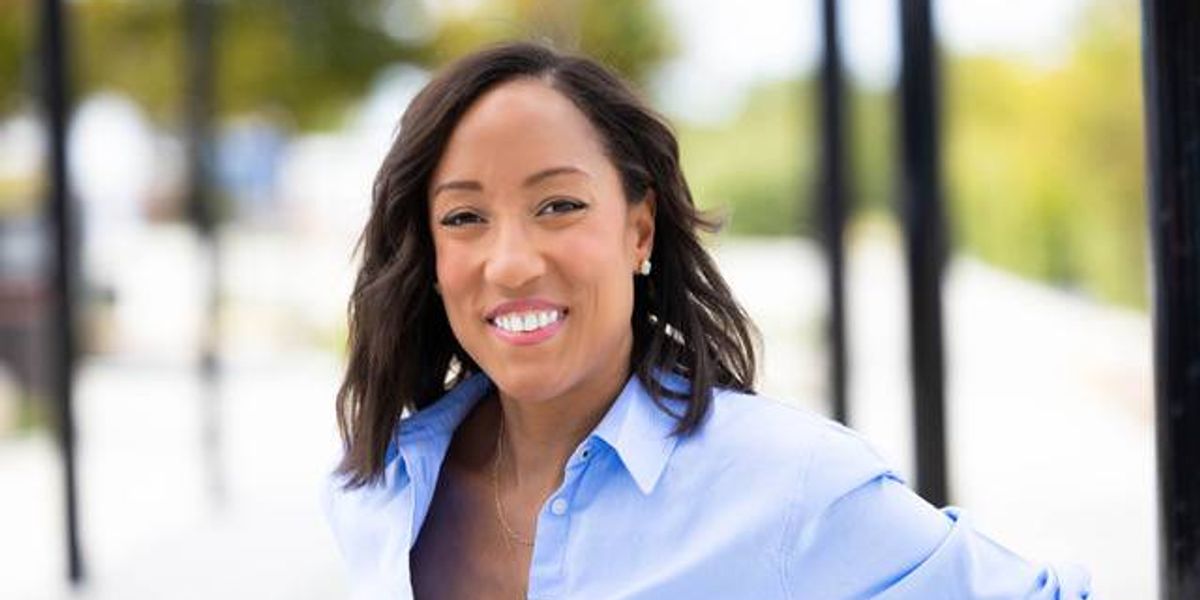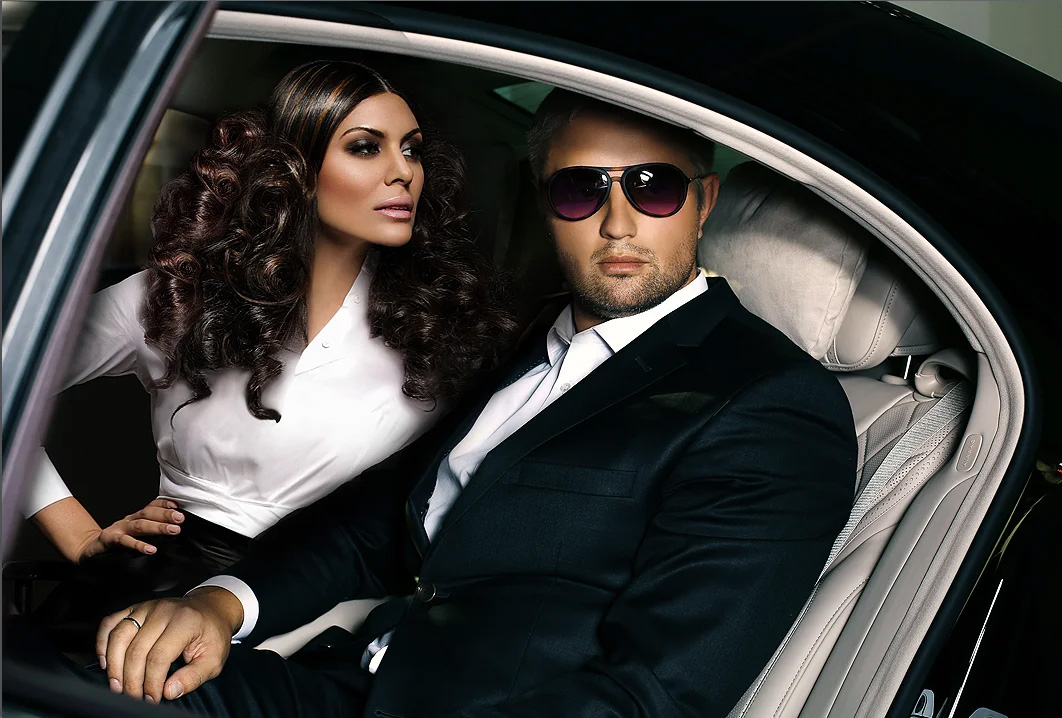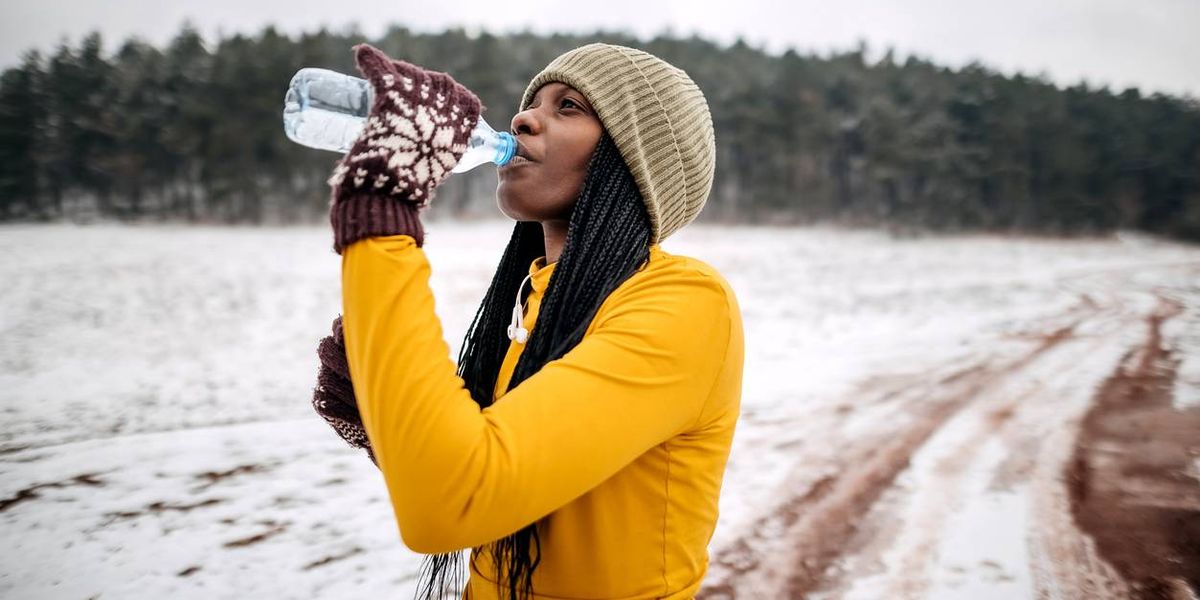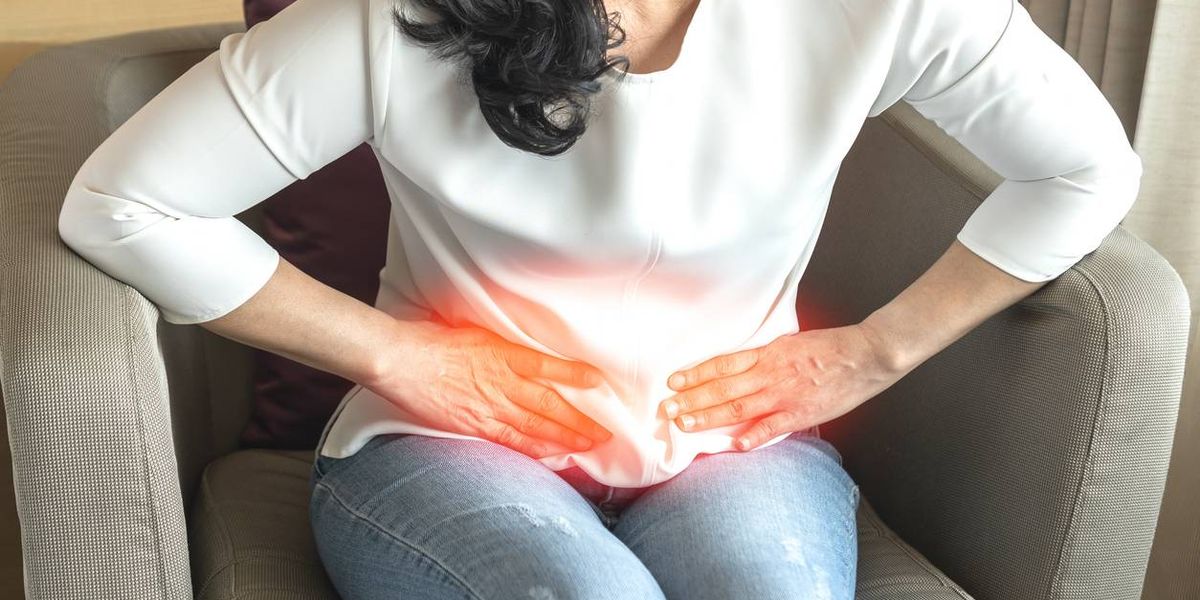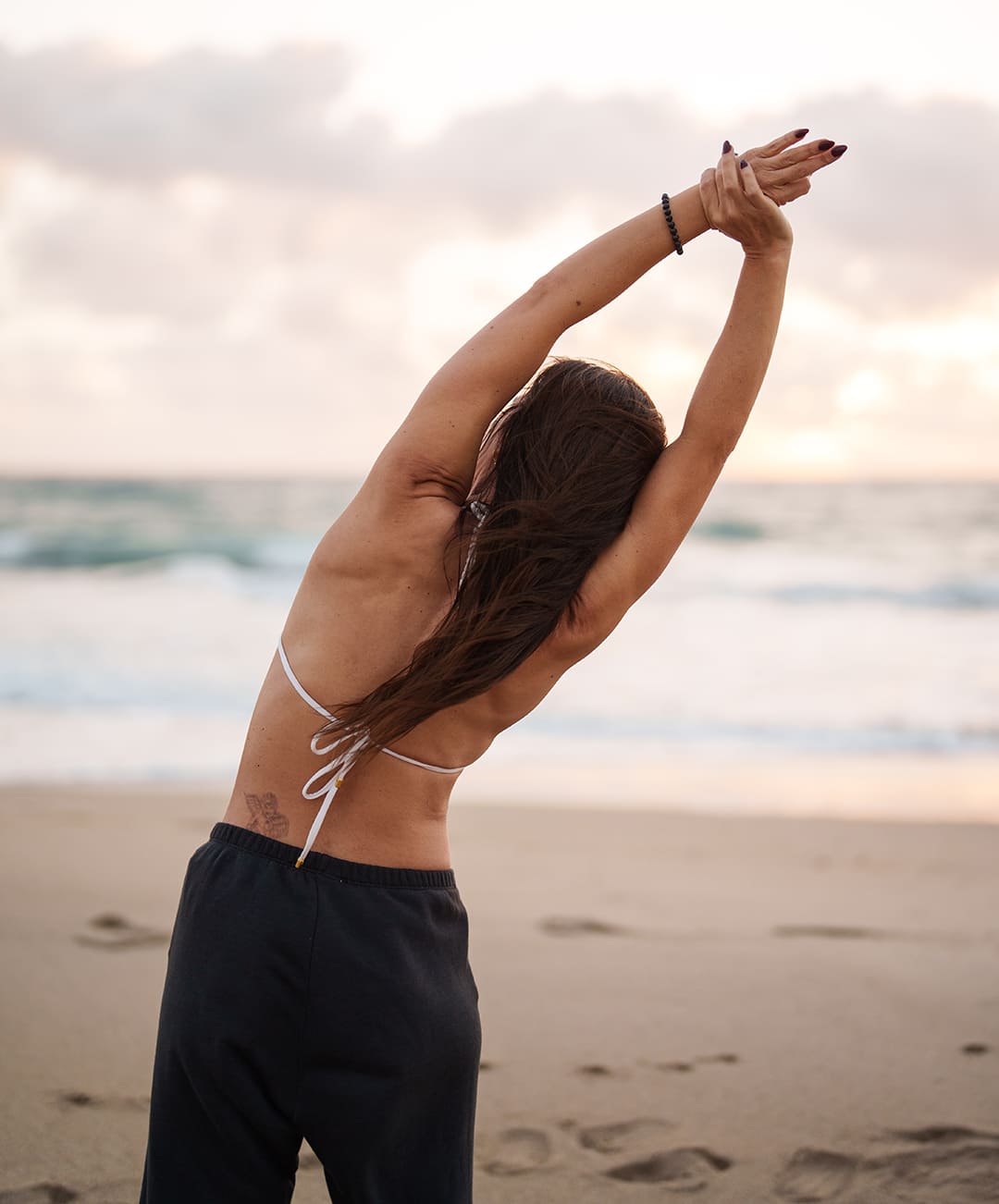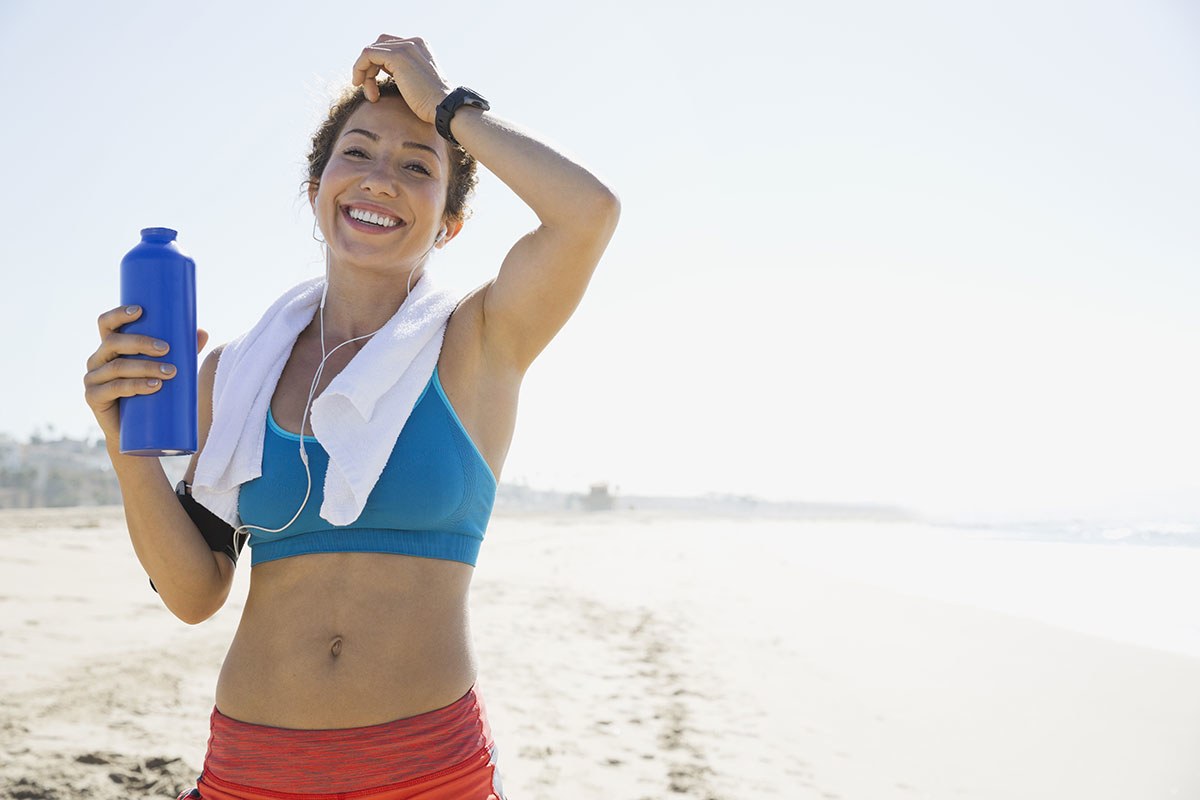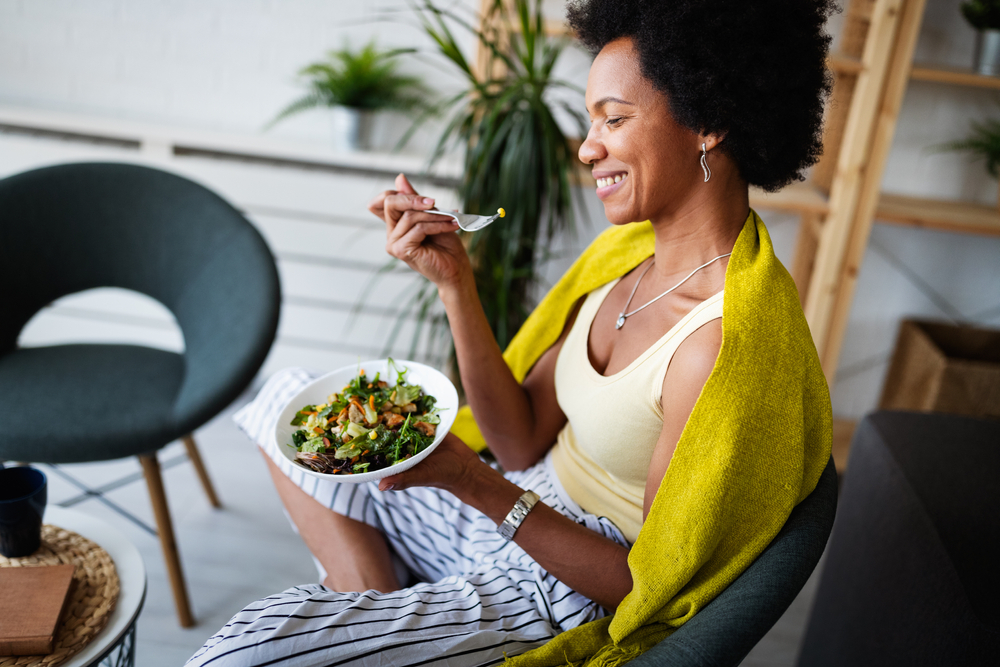As a Breast Surgeon I was Diagnosed with Breast Cancer
October is Breast Cancer Awareness Month.
As told to Marnie Goodfriend
All I ever wanted to do was become a doctor. My dad was a surgeon, and my mom was a nurse. I received a PhD in the genetics of cancers and spent my 30s training to become a breast surgeon. I loved the human body, and I loved operating. It was my life. But I never checked my own breasts. I thought, “I’m a doctor. I’m not going to get breast cancer.” I was healthy, had no history of breast cancer in my family and felt invincible. I had recently gotten engaged and had just signed up for my first triathlon when I saw a lump. It ended up being just a cyst, and I still didn’t check my breasts.
Two and a half years later, a month after I had cycled up the Stelvio Pass, a major mountain pass in Italy, I found another lump. My mammogram was normal, but when I got my ultrasound scan, I looked at the screen and saw cancer. The surgeon was my friend and a mentor who had trained me. She saw what I saw and asked me, “Who do you want to treat you because I don’t think I can?”
I had a week of waiting for the formal results, but as a doctor, I knew too much. I told my parents, “In a week, I’ll be telling you I have breast cancer.” It’s like I dissociated from myself. The results were positive for stage 3b breast cancer, and I started chemotherapy to shrink it down. Suddenly, I was about to undergo every treatment that I gave my patients, realizing how little I knew, how scared I was and how huge the decisions are that women with breast cancer need to make in a very short period of time.
The chemotherapy drugs — every three weeks for five months — were horrible. You lose everything — your fertility, your dignity, your power, your hair, your nails, your sense of pride. I didn’t know how to navigate being intimate with my husband: Do you touch the breast or not? How do I function in the world? The chemo treatments brought on instant menopause, so I had brain fog, hot flashes, and night sweats so bad I thought I wet myself in bed. You’re dealing with these instant changes to your body and your life while being really ill.
(Photo/Liz O’Riordan)
The week before Christmas in December 2015, I had a mastectomy with an implant reconstruction, and they took a couple of my lymph nodes out. But sadly, there were 13 centimeters of cancer left in my breast, and it had spread to my lymph nodes. So, the following month, I had another surgery to remove all my lymph nodes, and in April 2016, I had radiotherapy (that’s what we call radiation in the UK) and was put on a drug to try and stop the cancer coming back. During this time, I couldn’t work, and it took about another eight months once treatment had finished to get my energy levels and immune system back up to be able to work again.
When I returned, I was shadowing another doctor to make sure I was safe to practice. As a cancer patient, it was extremely difficult to tell patients they had cancer. It felt like I was reliving my own diagnosis, and knowing how much they would hurt post-surgery was mentally challenging. Everyone was asking me how I felt after the cancer, but I just wanted to be Liz.
With cancer, your identity suddenly changes. People didn’t recognize me because I used to have long hair, and now it was short and gray. I went to a local hospital where I’d worked as a junior doctor and saw the woman who had trained me. The only way she could treat me was to stop being my friend to try to reduce the emotional toll of operating on someone you know. It was really hard to be operated on and treated by colleagues of mine and my husband who is also a surgeon.
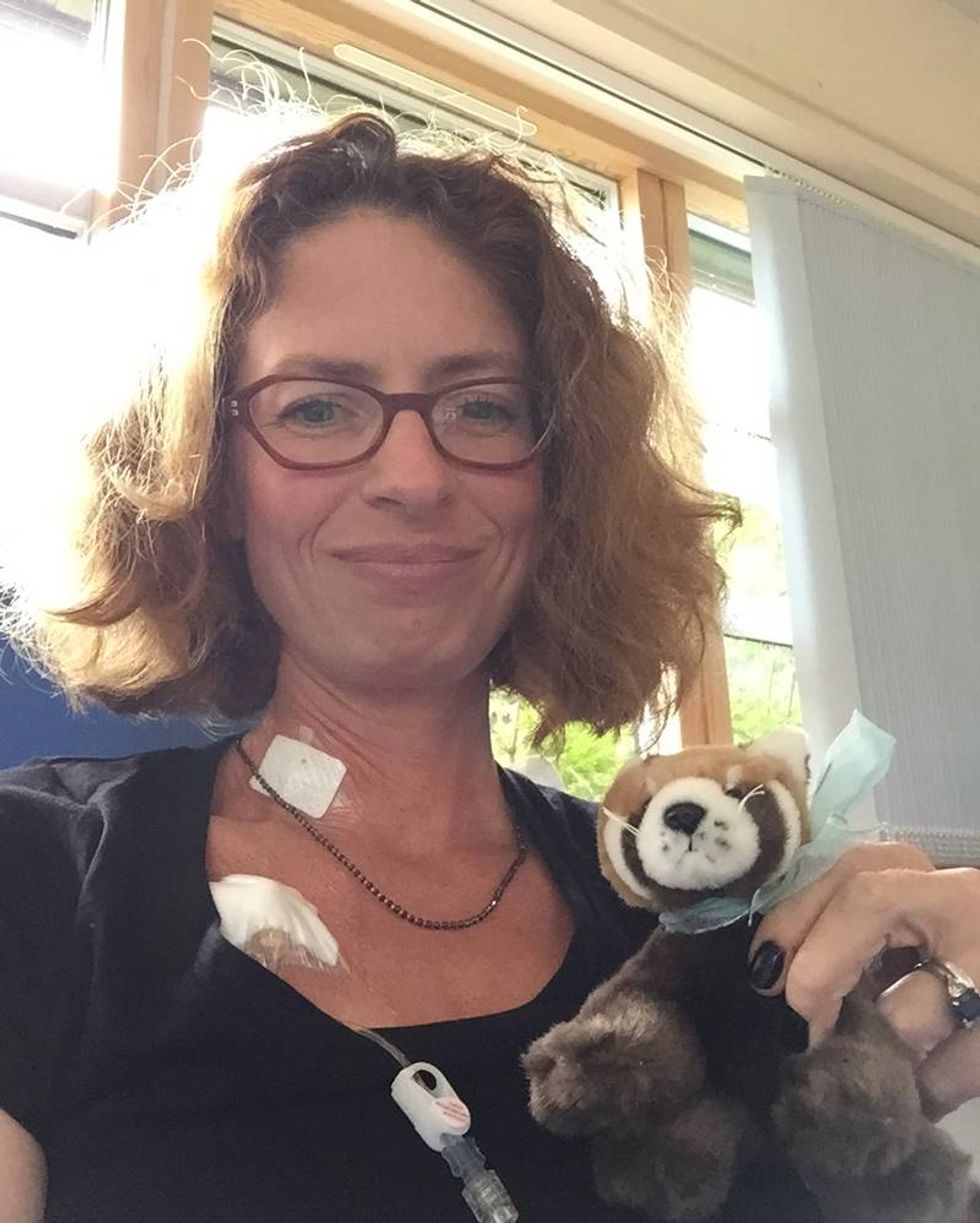 (Photo/Liz O’Riordan)
(Photo/Liz O’Riordan)
I found myself at home alone, unable to have children. I lived in a small village and didn’t have many friends. I’d lost my job, my purpose, my identity and my financial security. I started blogging weekly about my experience and decided the day after I got my diagnosis, to “come out” on Twitter. I used to tweet about triathlons and baking. Now, I was flooded with information and support from people all over the world. They told me, a breast cancer surgeon, how to cope with chemotherapy, what toothpaste is best if your mouth is sore and recommended cookbooks. Overnight, I had an instant network of women supporting me. With my writing, I wanted to offer a sensible opinion that wasn’t reactionary — and doctors and nurses thanked me for doing so. I realized I could help people in a different way.
I began explaining breast cancer with videos, writing and posts on social media, using my dual experiences as a surgeon and patient to reach people around the world to help them navigate cancer. In some ways, it was more fulfilling than being a doctor. I could connect with patients on an intimate level and encourage healthcare providers to talk about sex, menopause and how to help people live after you’ve operated on them, not just be alive. The growing community also shared important resources like CoppaFeel!, a UK-based organization that teaches you how to examine yourself properly and sends a text reminder on the first of every month to check your breasts.
In the spring of 2018, I noticed a nodule on my chest underneath my left armpit. It was a recurrence on my chest wall, and that meant I had to have my implant taken out, and more surgery and radiotherapy. I had my ovaries removed in September 2018, and I was put on a different hormonal blocking tablet to stop the cancer from coming back. I received a lot of therapy and treatment for my left arm because I couldn’t lift it very high, and to perform reconstructions, you have to contort yourself into awkward positions. Psychologically, I was a mess. I was so fearful of the cancer returning that I couldn’t be around women who were having recurrences, so I ended up retiring at 43.
This led to a collaboration with another local doctor who’d been diagnosed with breast cancer around the same time as me. Between us, we had bought 20 books about being a breast cancer patient and read questions on the internet like, “Is it safe to have sex during chemo?” “Will my husband’s hair fall out, too?” “Should I be detoxing?” You want to connect and be hugged, but there are men out there who are sleeping in separate bedrooms because they’re scared they’re going to catch cancer. We wanted to tell younger women to start taking preventive measures now, and if you’re already getting mammograms, the importance of checking your breasts in between.
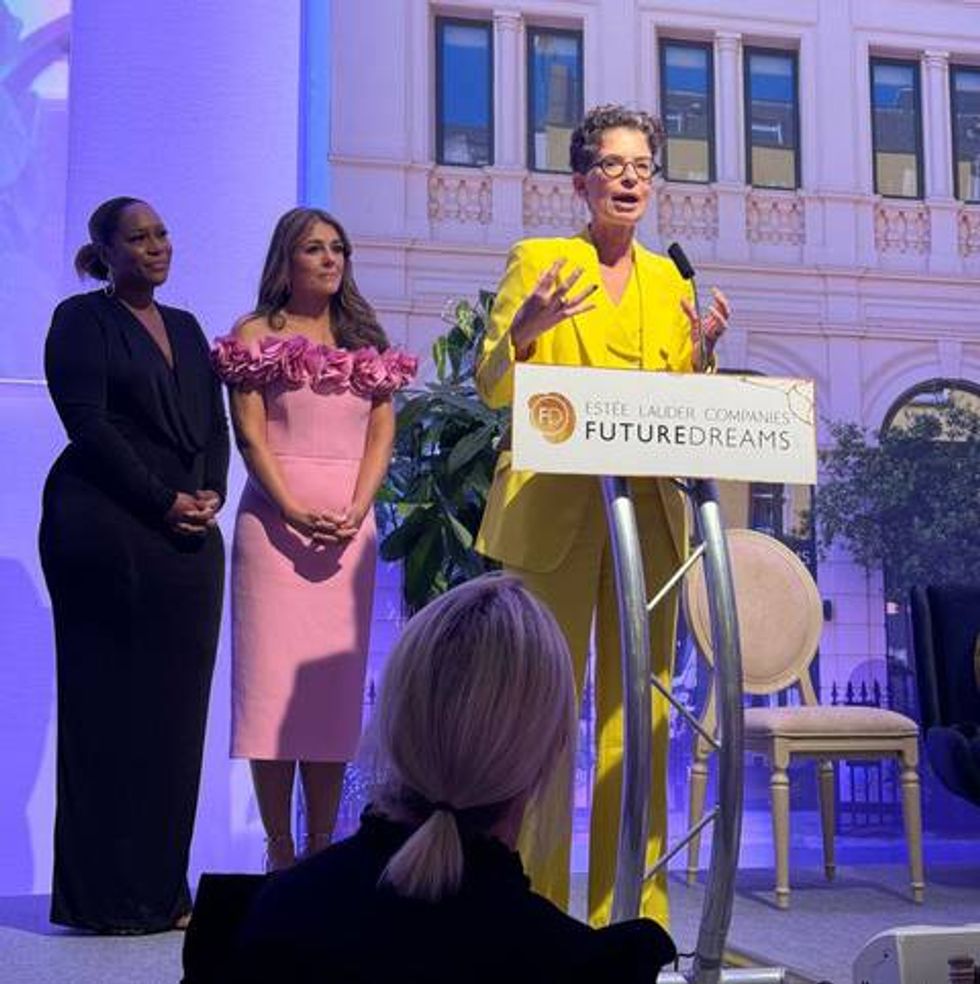 Liz receiving Humanitarian Award, 2024
Liz receiving Humanitarian Award, 2024
To dispel misinformation online and support patients, we decided to write a common-sense book about breast cancer, answering every question patients have from diagnosis to death. I’m deeply concerned about the rise of false information and people pushing alternative therapies and scams to make money. People believe them, and women in their 30s and 40s are dying because they’re doing something on TikTok instead of believing healthcare providers. Our book covers sex, exercise and mental health. We now know that exercise can reduce the physical and mental side effects of cancer and the risk of recurrence. It also helps fight fatigue. Before cancer, I was all about the data, my heart rate and ideal heart rate zones. Now, I show up to local park runs and cycle with people because I’ve made lasting friendships, and it brings me joy. I’ve got into wild swimming as well, swimming in rivers in the wintertime.
In 2022, six months after my mother passed from metastatic cancer of her right arm, my breast cancer came back in the skin near my mastectomy scar. I had more surgery, and now I get monthly injections and take a low-dose form of chemo I’ll be taking for the rest of my life, but the fact that I could use this horrible experience for good changed me. Sharing my writing online paved the way to becoming a published author and being asked to give a TEDx talk to help and protect breast cancer patients and the people who love them. I talk about how I never thought I’d feel like a woman again — I just looked like an alien. Then, I remembered when I was operating, all I could see of people was their eyes, which made me realize I don’t need external attributes to define me. Having a different relationship with ourselves and our bodies starts from the inside.
Today, I speak at events and conferences around the world, have a robust following on social media, and in 2024, I received a Humanitarian Award presented to me by Elizabeth Hurley. My new book, The Cancer Roadmap, will be released this November, and I’m working on another book about food and going into season four of my podcasts. But, I also have to remind myself that I have breast cancer, which means taking more time for myself. More river swimming, more walking the dog, more peaceful moments in the garden.
Resources
Breast Cancer Research Foundation
Have your own Real Women, Real Stories you want to share? Let us know.
Our Real Women, Real Stories are the authentic experiences of real-life women. The views, opinions and experiences shared in these stories are not endorsed by HealthyWomen and do not necessarily reflect the official policy or position of HealthyWomen.
From Your Site Articles
Related Articles Around the Web
Source link
Share this article:

